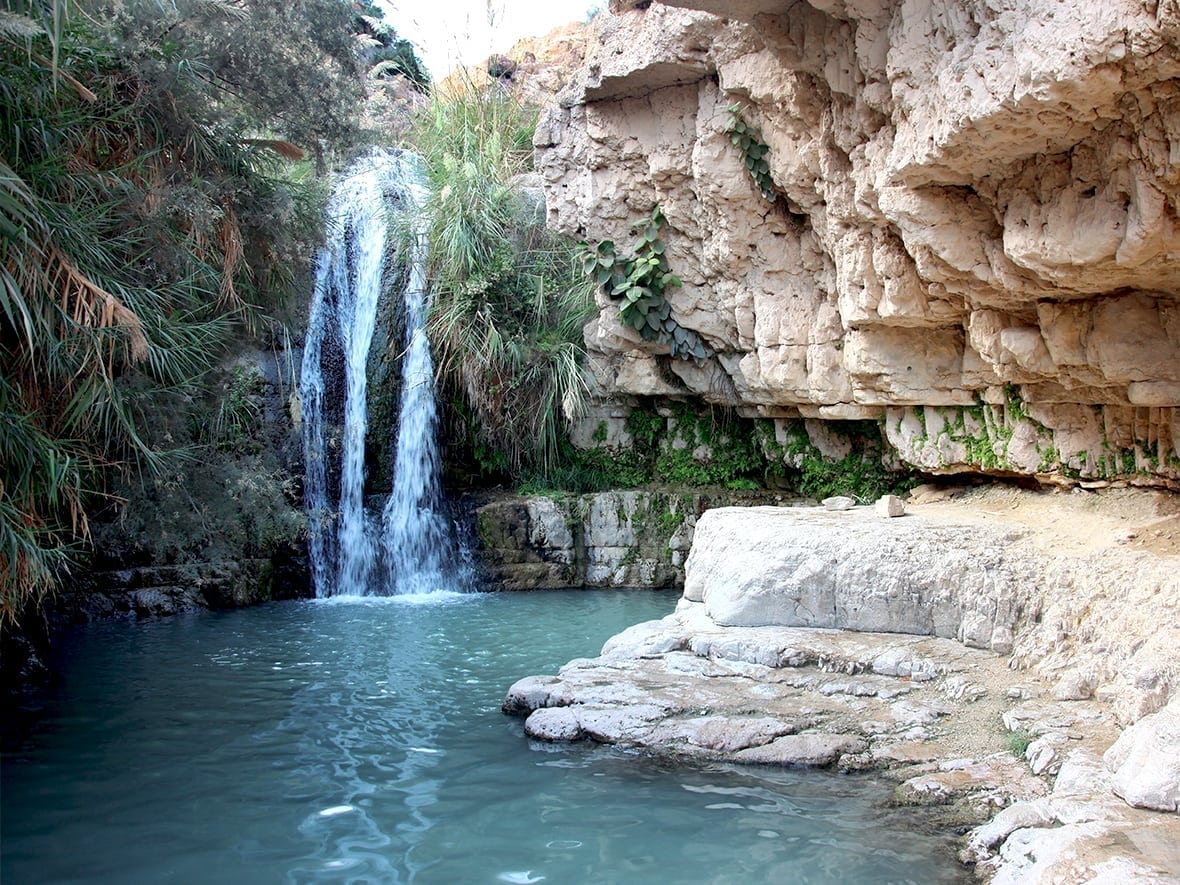There’s a talk from the 5th Lubavitcher Rebbe, documented in hayom Yom by the Rebbe.
It goes like this.
From a sicha of my father, after the conclusion of Shabbat Lech L’cha 5651 (1890): In the early years of his leadership the Alter Rebbe declared publicly, “One must live with the time.” From his brother, R. Yehuda Leib, the elder chassidim discovered that the Rebbe meant one must live with the sedra of the week and the particular parsha of the day. One should not only learn the weekly parsha every day, but live with it.
Dena and I arrived in Israel on Monday with our daughter Sara for our niece, Chana News’ wedding.
We planned to spend two days of relaxation and quality time together with Sara and our daughter Mira who joined us (she’s studying in Tzfat) at the Yam Hamelach, the Dead Sea.
On Tuesday, we decided to go to Ein Gedi. I had heard about it for years and have never had the chance to visit.
While driving to Ein Gedi we wondered where in the Tanach Ein Gedi is referenced.
Wednesday morning, I was sitting in the lobby of the Dead Sea hotel we were staying at and studying the day’s portion of the Parsha.
See the entire text
here, but in brief the Torah tells us about a battle between 5 kings and 4 kings, the capture of Abraham’s nephew Lot and Abraham’s victorious battle to save him.
Here is the verse that I read.
All these joined in the valley of Siddim, which is the Dead Sea.
We had taken a walk the night before and were discussing why the Dead Sea was called a sea when in fact it is more of a lake. ..
Rashi answered the question for us.
which is the Dead Sea: Afterwards, the sea flowed into it, and it became the Dead Sea. The Midrash Aggadah (Gen. Rabbah 42:6), however, states that the rocks around it split, and rivers flowed into it.
A few verses later the Torah tells us some details about the battle.
And they returned and came to Ein Mishpat, which is Kadesh, and they smote the entire field of the Amalekites, and also the Amorites who dwelt in Hazezon Tamar.
And of course Rashi to the rescue:
in Hazezon Tamar: This is Ein-Gedi. This is an explicit verse in (II) Chronicles (20:2) concerning Jehoshaphat.
Sometimes we have to make an effort to live with the times, sometimes the times come to you.
Study the daily Parsha, and keep your eyes open. The Torah is alive and it gives life.
Good Shabbos and Shabbat Shalom from the holy city of Jerusalem!
Rabbi Eliyahu Schusterman


















